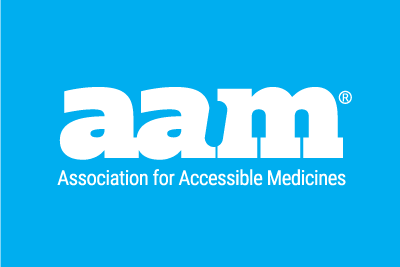Amid rising health care costs, generic drugs stand out for delivering low-cost, affordable and accessible health care options for patients. As a result of robust head-to-head price competition that rapidly drives costs down to a fraction of the brand price, generics today comprise more than 90% of all prescriptions dispensed in the United States but only 18% of prescription drug spending.
Unfortunately, a provision in the Build Back Better Act under consideration in Congress threatens this success. The provision, called the inflation rebate penalty, creates a cap on any price increases greater than inflation. Although the provision is largely intended to discourage and/or penalize brand drug manufacturers from taking large price increases, its application to generic drugs increases the likelihood of generic drug shortages that could impact patient care.
Unlike high-priced brands, generic drugs are typically low-margin products, the result of years of competition based on lower prices and any increase in production costs may impact the manufacturer’s ability to continue to make them. For instance, a generic manufacturer may face unavoidable rising ingredient or transportation costs that make the product unprofitable to manufacture without raising prices. But the legislation would block the ability to adjust for increased costs – leaving them the choice of making the product at a loss or exiting the market. And as manufacturers exit markets, those products become more vulnerable to shortages, which is why shortages are more likely to be observed among older generic drug markets.
The legislation could even undermine solutions to resolve an ongoing drug shortage. In this instance, a company with a previously FDA approved and marketed generic drug might be able to quickly restart manufacturing to alleviate the shortage for patients. But the price the company would need to afford to produce the drug would likely have to be higher than its previous price before they exited the market; this would expose the manufacturer to the penalty. Although the bill exempts drugs in shortage from the penalty, the penalty would apply as soon as the drug is no longer in shortage, at which point the manufacturer would have no choice but to produce the product at a loss or re-exit the market. It would thus discourage a manufacturer from entering the market at all and extend the drug shortage.
And perversely, because the rebates would be assessed based on the drug’s Average Manufacturer Price (AMP), the provision would even apply to generic drugs that did not increase in price. Generic manufacturers cannot always control fluctuations in AMP. A drug’s AMP may increase due to factors such as changes in customer purchasing patterns. This unpredictability could cause generic manufacturers to exit low margin markets, leaving patients with fewer choices and an unstable supply.
As Congress considers how best to limit high drug prices, it must differentiate between high cost brand drug monopolies and low cost generics that deliver essential medicines at affordable prices. The Build Back Better Act fails to do so and thereby compromises the ability of generic drug manufacturers to prevent and respond to shortages on essential, life-saving therapies for patients.
Share Your Voice
Tell Congress to protect access to your safe, affordable generic and biosimilar medicines.
By Monét Stanford, Director, Policy
Published on December 2, 2021




